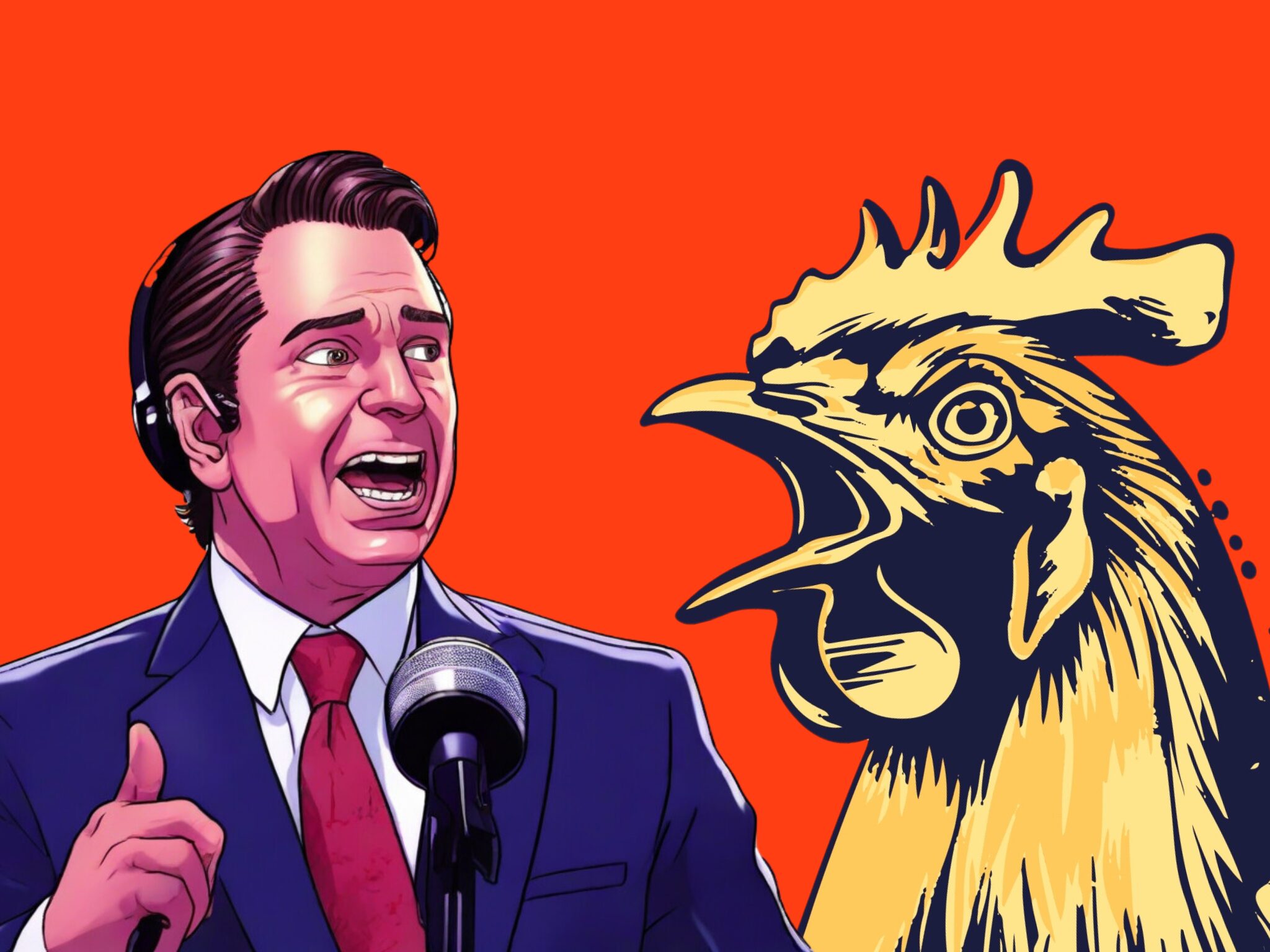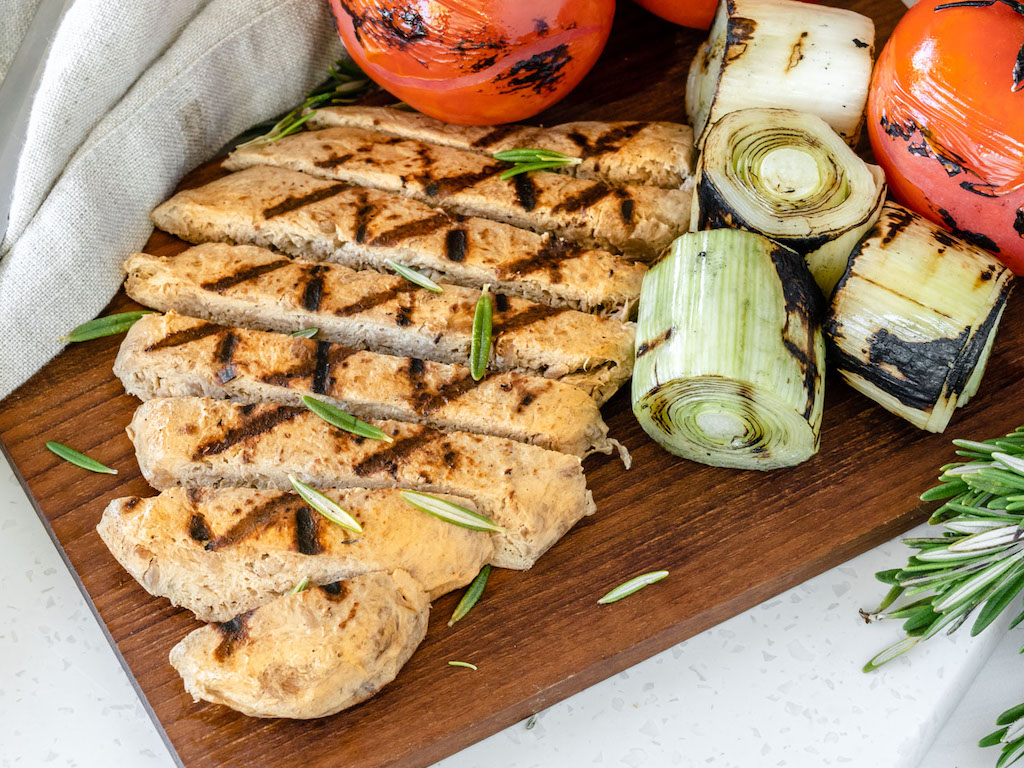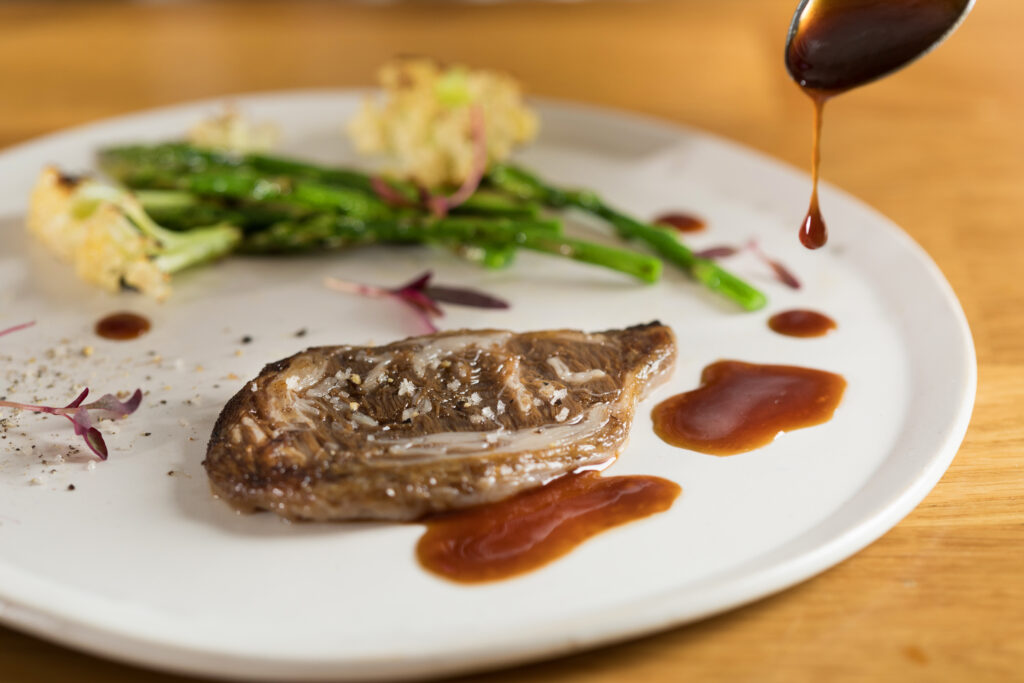
Florida will imminently ban cultivated meat from being produced or sold within state borders, with governor Ron DeSantis set to sign the bill that was passed in the Republican-controlled House last week. But the alternative protein industry is fighting back.
“We’re not going to do that fake meat. Like, that doesn’t work.”
These are the words of a lawmaker whose presidential campaign to undo all climate progress didn’t work (although the man who beat him out is worse). However, Ron DeSantis is still the governor of Florida, and despite support for the Republican seesawing over the last couple of months, his words are likely to come true soon.
Last week, a Senate bill that attempted to ban cultivated meat in Florida was passed by the House of Representatives, meaning all it now needs a sign-off from DeSantis’s red pen. And given his rhetoric about what he calls “fake meat” (which it isn’t) and overarching views about the climate crisis – he believes humans, four million of whom could die due to climate change in 2024, are safer than ever – his approval of the ban is an almost certainty.
This would mean, despite scientists, the USDA, and the FDA ruling that cultivated meat is safe for human consumption, Florida’s Big Ag lobby and livestock-loving policymakers have decided otherwise. The alternative protein industry, however, isn’t having it – and it’s pushing back with a new campaign.
Why Florida wants to ban cultivated meat
We’re eating steak tonight. https://t.co/IQA0AnxYcB pic.twitter.com/HaOwMGyUIb
— Jay Collins (@JayCollinsFL) February 29, 2024
It all started in November last year, when Florida House representative Tyler Sirois proposed a bill (HB 435) seeking to ban the manufacturing and sale of cultivated meat within the state, imposing criminal penalties on anyone violating these rules. There was a list of penalties for non-compliance, with violators facing a misdemeanour of the second degree, alongside a fine between $500 to $1,000, and a possible license suspension or immediate stop-sale order.
While that didn’t really go anywhere, two others have. HB 1071, sponsored by Republican House representative Danny Alvarez, has been passed by the House and will now go to the Senate. And SB 1084, introduced by Republican state representative Jay Collins in the Senate, has been passed in both chambers. It prohibits people from producing, selling, holding or distributing cultivated meat, with similar penalties of second-disagree misdemeanours, licence suspensions, and stop-sale orders.
“There are many concerns right here and, until we have those studies and there’s proof positive that this process is going to work, we want to ban this in the state of Florida because it’s just not there quite yet, Collins has said, despite the USDA and FDA carrying out multi-year reviews to prove the exact opposite.
The real reason, really, is an intention to protect the state’s livestock industry from competition from novel protein companies, perpetuate what has become a common right-wing neophobia of food tech, and mobilise voter sentiment against the “woke elite” in the climate change and alt-protein culture wars. It’s a crucial aspect considering that Republicans are looking to reclaim the White House by the end of the year.
UPSIDE Foods Launches Give a Cluck Campaign
As we await DeSantis’ inevitable sign-off, alternative protein companies are fighting back with awareness campaigns and op-eds. California’s UPSIDE Foods, which is one of the two manufacturers in the US to have been approved to sell cultivated meat, is asking what the fuck – sorry, cluck – is going on.
The company argues that the bill “bans your right to choose your meat”. But instead of just restricting consumer choice, it also threatens innovation, the free market and the nation’s biotech leadership.
“We understand cultivated meat may not be for everyone, but it’s clucking frustrating to see a state close their doors before they’ve even had a chance to taste it [only restaurants in California and Washington DC have served cultivated meat so far] – or really even learn about how it’s made and the potential benefits,” the company says. “It’s like killing your chickens before they hatch.”
UPSIDE Foods says supporters of these bans are victims of online misinformation and have concerns over safety, competition with conventional meat, ethics, and economics. But it points out how the US food safety regulators have approved these products, adding that cultivated meat is “complementary, not competitive” and will co-exist with other meat production methods.
The startup further notes that everyone should have the freedom to choose what they eat, and cultivated meat can potentially make people in an ethical dilemma feel good about meat-eating. Finally, it suggests that this ban – and other similar proposals across the US – will give other countries a competitive edge in producing a more “resilient and self-sufficient food system”.
Therefore, UPSIDE Foods’ self-produced campaign is asking consumers to call or email DeSantis to veto SB 1084 and HB 1071. “Americans stand for freedom… not bans on freedom or free markets or choice,” said founder and CEO Uma Valeti.
The meat industry is also against Florida’s ban on cultivated meat

But it’s not just UPSIDE Foods that is pushing back – others have joined the fight too. Leaders from 38 VC funds have signed a letter against the ban, noting that becoming the only state to ban cultivated meat would stop it from attracting investment in research.
“Passage of this legislation will have economic ramifications for Florida. Biotechnology and biomanufacturing are among the fastest-growing industries in the United States, with biomanufacturing leveraging biological systems to produce goods at a commercial scale, offering innovative solutions across various sectors including plastics, fuels, foods, and pharmaceuticals,” the letter reads. “In the short life of this emerging industry, investors have already put almost $3B in capital to work on this product, supporting thousands of jobs in this promising industry.”
It continues: “Florida would uniquely choose to restrict a vital segment of the American biotechnology sector. Such a decision will raise strong doubts among investors about the state’s commitment to supporting emerging technologies, hindering future investments to the industry and Florida.”
Meanwhile, industry leaders have voiced their concerns too. Writing for The Hill, Paul Shapiro, CEO of The Better Meat Co (which produces mycelium protein for blended meat), called the ban a “dumb mistake”. “DeSantis and other like-minded policymakers seeking to deny Americans the freedom to choose the meat they can eat may see a threat from innovative entrepreneurs working to bring cultivated meat to market,” he explained. “But those committed to a free market should ask if it’s really the state’s role to stamp out entrepreneurial competition to ensure incumbent industries always win.”
He added that, despite progress, we’re “still a long way from seeing cultivated meat show up [on] grocery shelves, due to the industry’s lack of scale”. This was echoed by Didier Toubia, CEO of Aleph Farms (only the third company to have received regulatory approval for cultivated meat globally), who wrote in an op-ed for Fast Company about how what he sees as “continuous progress and learning”, critics view as “unwarranted delays or even downright failure”.

Toubia outlined that his one regret was not tempering consumer expectations about the mainstreaming of cultivated meat, which is “not a quick fix”. “Sceptics are right to point out that cellular agriculture cannot afford to remain stagnant; it must keep evolving in order to have its intended impact,” he wrote, adding: “By better qualifying our success and managing expectations, we can help people see cultivated meat as we see it: a marathon rather than a sprint.”
But perhaps the most striking opposition to Florida’s ban comes from the very industry its lawmakers are trying to ‘protect’. The North American Meat Institute, the country’s oldest and largest trade association (representing 95% of the US’s meat output), has called the ban “bad public policy” in a letter to DeSantis.
“Legislators and others who beat the ‘food safety’ drum in support of HB 1071 and SB 1084 do so at their peril, and the peril of others, because these bills establish a precedent for adopting policies and regulatory requirements that could one day adversely affect the bills’ supporters,” the letter states, suggesting that it could set a precedent for climate or health policies in other states that could ban conventional meat.
“Restricting the sale and manufacture of cell-cultivated meat products limits consumer choice and denies Floridians access to food options,” it adds. “Decisions about what to consume or purchase should be left to the market and consumers, not dictated by legislation that hampers progress and competition.”
What does it say about a state’s policy when the very group lawmakers are purportedly ‘protecting’ calls out its bullshit? I’ll let DeSantis be the judge of that.
The post Florida Will Soon Ban Cultivated Meat – Here’s How the Industry is Fighting Back appeared first on Green Queen.
This post was originally published on Green Queen.